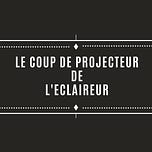Peace for the US led West means its absolute domination. No negotiation, no compromise. That includes fabricating scapegoats and pretexts. G.W Bush discribed the Axis of Evil as Iran - Irak - North Korea. None of them had any responsibility in the 9/11 attacks. In the current Israeli-palestinian hot war, the West tried and failed to designate Iran as the main culprit of Hamas’ horrendous terrorist attack on israeli military outposts and civilians. Meanwhile one of the most destabilizing actor that heaviliy funds Hamas, more or less all Sunni jihadi organizations and Turkey’s military expansion, Qatar, is left unscathed.
As the bloody Ukrainian catastrophe keeps on unfolding and the world gets closer to the abyss, we’ve had the opportunity to discuss these issues and many more with Prof. Glenn Diesen.
La transcription française de ce podcast sera publiée le 30 octobre à 18h.
Dr. Glenn Diesen is a Professor at the University of South-Eastern Norway (USN), and an editor at the Russia in Global Affairs journal. His research focus is Russia’s Greater Eurasia Initiative as a geoeconomic and conservative concept. Diesen’s latest books are : “Europe as the Western Peninsula of Greater Eurasia: Geoeconomic Regions in a Multipolar World” (forthcoming); “The Return of Eurasia” (forthcoming); “Great Power Politics in the Fourth Industrial Revolution: The Geoeconomics of Technological Sovereignty” (2021); “Russian Conservatism: Managing Change under Permanent Revolution” (2021); “Russia in a Changing World” (2020); “The Decay of Western Civilisation and Resurgence of Russia: Between Gemeinschaft and Gesellschaft” (2018); “Russia’s Geoeconomic Strategy for Greater Eurasia” (2017) and “EU and NATO relations with Russia: After the collapse of the Soviet Union” (2015).
L'Eclaireur : There's been for the past couple of days a lot of increased Chinese and Russian naval activity in the Mediterranean and the Red Sea. What’s your take on this ?
Prof. Glenn Diesen : Well, I don't see them directly threatening the United States. I think the Chinese went out of their way to point out that this was not related to the conflict between Israel and Gaza. Likewise, the Russians tried to make it clear that they were not threatening anyone.
That being said, it's obviously a power projection, signaling clearly to the United States that the Middle East is not its under its hegemony. It's not as if the United States is the only one who has a final say in this matter. So it is a way for China and Russia to put themselves on this geopolitical chessboard.
L'Eclaireur : We've also seen the Americans claiming that they will start planning massive evacuation operations from the region, both from Israel and Lebanon, where 600,000 Americans are living. What do you make out of it ? Is it planning more forces ? Is it a pretext ?
Prof. Glenn Diesen : It's hard to say. It's certainly possible. That being said, sometimes states such as the United States have benign intentions. They want to mainly evacuate their own citizens, for example, or provide aid. Then you have mission creep. In order to protect for example the civilian population you send in military force. Other times this is deliberate from day one. It's simply going in under the guise of an evacuation mission or some humanitarian objective and obviously havea different intention.
Now, for the United States, a huge military power who defines its security being conditioned on its global hegemony, I would argue that its military objectives are not confined solely to evacuation and humanitarian means.
It's a nice way of selling the politics, but usually very deceiving.
L'Eclaireur : What do you make of the Russians that supposedly having said to the Turks that they will escort Turkish humanitarian ships delivering aid to Gaza?
Prof. Glenn Diesen : I think it shows how the world is becoming more multipolar in many ways, because in the Cold War and the post-Cold War era, it's always been block thinking, either with us or against us.
But what we see now is more pragmatism, because in conflicts, for example in Syria as well as in Ukraine, the two countries find each other on opposite sides. I think both Turkey and Russia would like to play a greater role in supporting the Palestinians, yet not going against Israelis necessarily, but at least supporting the Palestinians. This is a good way for Turkey and Russia to cooperate and it's, I think, simply common interests.
L'Eclaireur : What do you make of the low-noise diplomatic efforts that are currently undertaken by the Chinese, which we don't hear much, but have stated clearly that they will not support any form of ethnic cleansing in Gaza ?
Prof. Glenn Diesen : The Chinese, much like the Russians, want a more balanced approach to the region. That is, they don't want to go against Israel, but they also don't want to take this position with Israel against the Palestinians either. I simply see the Chinese initiative being similar to the Brazilian and the Russian before that, which is to get an end to this conflict because this is not just a humanitarian crisis with all the killings happening, but it also has the potential to unravel the entire region.
The idea that you can commit ethnic cleansing on such a huge scale, and even the war crimes are being committed now in Gaza… You can't contain this conflict. We already see that the American military bases have been struck in both Syria and Iraq.
Other countries might join in on this conflict as well if it intensifies. So I think that there's a big interest now in getting an end to this conflict.
We see this in the voting in the UN. So far the United States was the only one who vetoed the ceasefire. I just don't see any other country in the world at the moment having an interest in continuing this war.
L'Eclaireur : So would it be fair to talk about a strategic stalemate for the US and Israel currently, as it stands?
Prof. Glenn Diesen : They're at a difficult position because the way the Israelis see it, if they don't launch a ground invasion, then this could be interpreted as a victory for Hamas…
L'Eclaireur : Excuse me to interrupt, but Hamas already had a huge strategic victory, whether we like it or not. It's just mind-blowing. It looks like Israel has been contributing since 1996 to building a quasi-state actor, which is now what Hamas is. It's a terrorist quasi-state actor.
Prof. Glenn Diesen : That's what I'm saying.
I think that it would be seen as a victory for Hamas unless Israel defeats it. But if Israel will come off this victorious and weaken Hamas, then a ground invasion is required. But a ground invasion will be devastating. It would alienate a lot of Israel's allies, it will cause internal splits within Israel itself and it would turn a lot of the neighbors of Israel who wants to have good relations into enemies possibly involving themselves in the conflict. And you would see a lot of this new rising great powers, from China to Russia, taking a more hostile approach towards Israel.
So Israel has a lot to lose if it advances further, but it also has a lot to lose if it doesn't.
The Israelis are in a very difficult spot and now, you know, it's unclear what the Americans really want, how much pressure the Americans are actually pushing on them about whether or not they should go through with this.
L'Eclaireur : But if they get into Gaza, we know the fighting is going to be done in tunnels. Into the whole underground infrastructure that Hamas has built. It's going to be bloody. Can Israel take the amount of casualties this will mean ? Because we're talking thousands of Israeli soldiers being killed.
Prof. Glenn Diesen : It's hard to say. There hasn't really been a precedent for this yet. That's kind of the first rule of war. When you go to war, it will never end or play out the way you planned it.
So again, no one knows what's waiting for them inside Gaza in all of these tunnel systems. And if Israel takes huge casualties, then Israel will have another dilemma. How would it respond ?
Would it withdraw, which would be again a humiliating defeat ? Or would it escalate dramatically ? I'm not sure what they could use, maybe chemical weapons in the tunnels ? Would they do intensive bombing campaigns against the civilian population as well, accepting more collateral damage ? There's a lot of different uncertainties and this is the problem.
Once Israel goes in and it doesn't play out the way it’s been expected, it will probably have to face other very difficult choices. So there's a lot of uncertainties and a bit too much at play at the moment. It's a very dangerous situation for every actor.
L'Eclaireur : Would it be fair to say that Israel's fate rests in the hands of Arab countries?
Prof. Glenn Diesen : Well, yes, because that's its neighborhood. For the past fifty years, Israel had the United States having its back, which meant that the Israelis never really had to make any compromises, any significant compromises.
Instead, they had a very maximalist approach in terms of rejecting a state for the Palestinians, cleansing a lot of territory of Arabs and Palestinians and incorporating it into Israel. Israel could do this because the United States supported it.
Now, you can argue that this was positive, however. The negative aspect is that a political settlement was never reached. This is often what you see when you have a very powerful actor and a very weak one.
The problem now, of course, is that the United States is in relative decline. It's weakening. Despite Biden's insistence that it can fight Russia, China, Iran, everyone at the same time, this is simply not the case.
The logic would be, if you think that you're going to be in a worse position tomorrow than you are today, that you would want to seek a settlement today.
It's unclear what Israel has to do. At the moment, the way I see it, it has a dilemma. It should sit down with the Palestinians, come up with a comprehensive solution. Again, it's not even clear that a two-state solution is possible anymore. It certainly has been undermined for so long.
Or Israel has to go full in and assert its dominance in the region. But as you said, the Arab states… Israel has to live with its neighbors, so it puts some limitations on how it can treat Palestinians.
L’Eclaireur : From your vantage point, to what extent does Benjamin Netanyahu's personal standing plays into that game?
Prof. Glenn Diesen : We often speak about Israel as if it's a unitary actor. This goes with all states. Within the state you have a competition for power. And as we've seen lately, Israel does not enjoy a lot of political unity at the moment.
The strong unpopularity of Netanyahu is real, and we often don't see this in Western media because if you support Israel, it means support for what its government does. But as we look at the Israeli society, if you read Israeli media, you see a huge opposition. Netanyahu is very unpopular for a lot of his policies and for a variety of reasons.
His efforts to build up what's been discussed before, the covert support for Hamas in order to have an enemy which can be defeated, as opposed to having the West Bank to negotiate with. A lot of Isreali think that it has blown up in its face. I think there are more nuances, discussion and open debate in Israel than we have in the West
L’Eclaireur : How would you describe Europe's attitude ?
Prof. Glenn Diesen : It's in a difficult position because on one hand its support has to be, to a large extent, unconditional for Israel. At the same time, Europe largely defines itself by liberal values, humanitarian values…Would we support Israel doing ethnic cleansing ?
You have to choose sides, either yes or no on this one, so I think this puts the Europeans in a difficult position. Usually what Europe does when it has a complex problem is it often begins to speak in clichés and slogans, so you know, “we stand with Israel”, “Israel has a right to defend itself”, “the deaths are Hamas's faul”t, you know, this kind of stuff. It's very shallow and it doesn't actually mean anything. It's like saying Israel has a right to defend itself, but surely the Palestinians do as well, so it doesn't make much sense, any of this...
So it's just sloganeering, I think, in the absence of ability to exhibit any intellectual honesty with regards to what’s happening on the ground.
Écoutez cet épisode avec un essai gratuit de 7 jours
Abonnez-vous à L'Eclaireur - La Lettre des Alpes pour écouter ce post et obtenir 7 jours d'accès gratuit aux archives complètes des posts.













